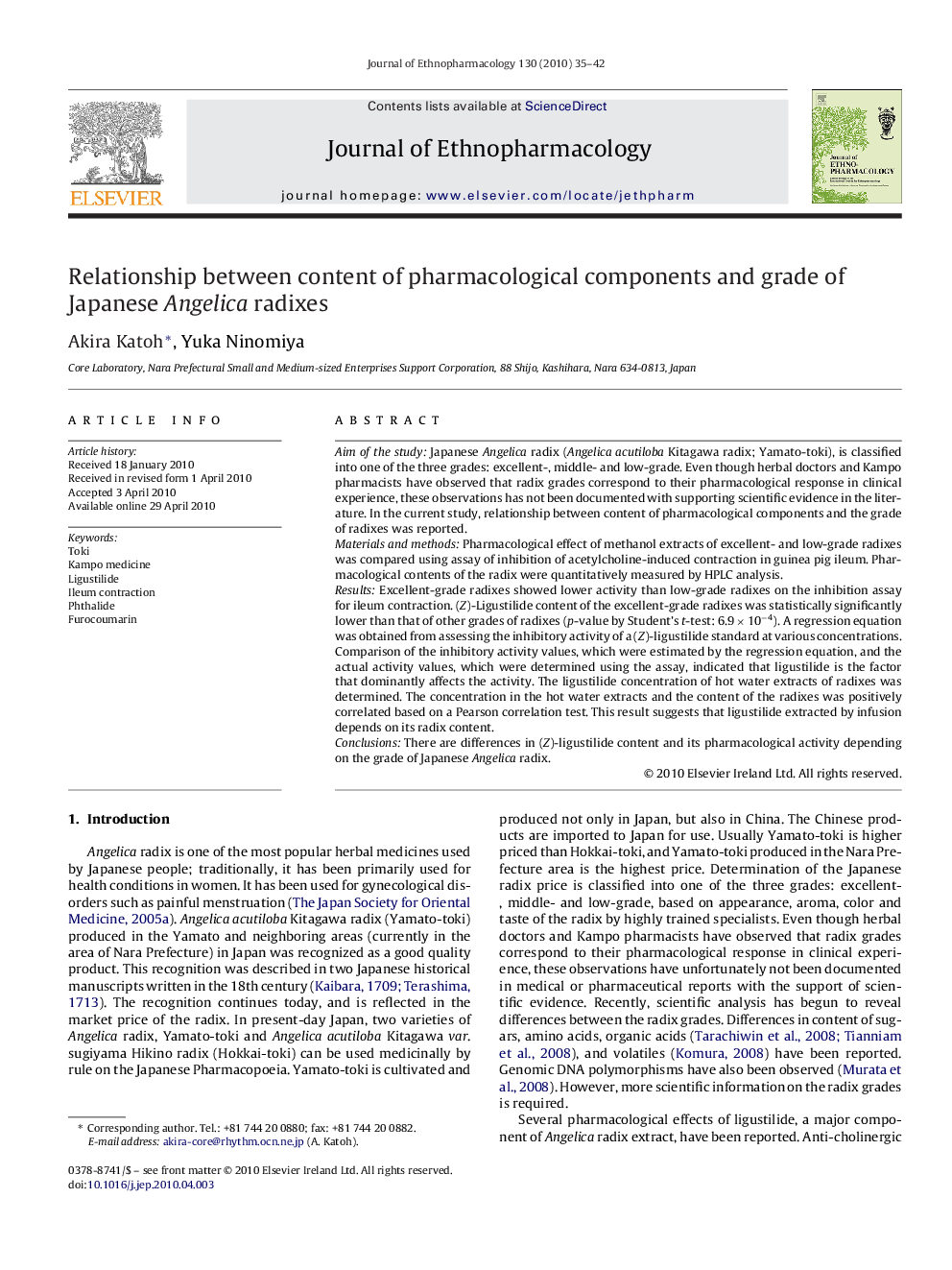| Article ID | Journal | Published Year | Pages | File Type |
|---|---|---|---|---|
| 2546424 | Journal of Ethnopharmacology | 2010 | 8 Pages |
Aim of the studyJapanese Angelica radix (Angelicaacutiloba Kitagawa radix; Yamato-toki), is classified into one of the three grades: excellent-, middle- and low-grade. Even though herbal doctors and Kampo pharmacists have observed that radix grades correspond to their pharmacological response in clinical experience, these observations has not been documented with supporting scientific evidence in the literature. In the current study, relationship between content of pharmacological components and the grade of radixes was reported.Materials and methodsPharmacological effect of methanol extracts of excellent- and low-grade radixes was compared using assay of inhibition of acetylcholine-induced contraction in guinea pig ileum. Pharmacological contents of the radix were quantitatively measured by HPLC analysis.ResultsExcellent-grade radixes showed lower activity than low-grade radixes on the inhibition assay for ileum contraction. (Z)-Ligustilide content of the excellent-grade radixes was statistically significantly lower than that of other grades of radixes (p-value by Student's t-test: 6.9 × 10−4). A regression equation was obtained from assessing the inhibitory activity of a (Z)-ligustilide standard at various concentrations. Comparison of the inhibitory activity values, which were estimated by the regression equation, and the actual activity values, which were determined using the assay, indicated that ligustilide is the factor that dominantly affects the activity. The ligustilide concentration of hot water extracts of radixes was determined. The concentration in the hot water extracts and the content of the radixes was positively correlated based on a Pearson correlation test. This result suggests that ligustilide extracted by infusion depends on its radix content.ConclusionsThere are differences in (Z)-ligustilide content and its pharmacological activity depending on the grade of Japanese Angelica radix.
Graphical abstractFigure optionsDownload full-size imageDownload as PowerPoint slide
